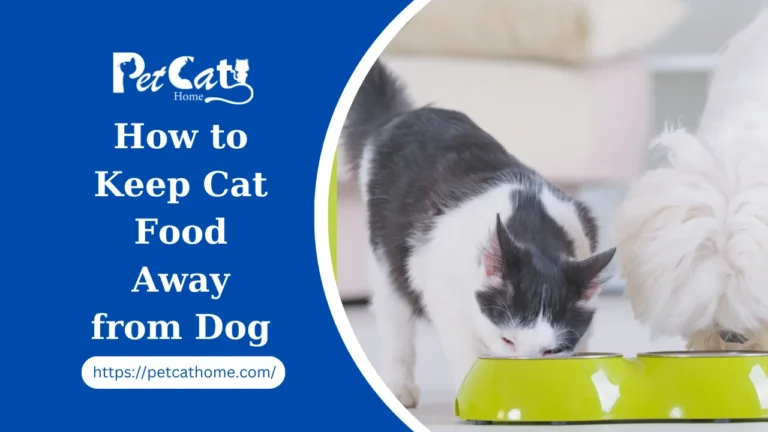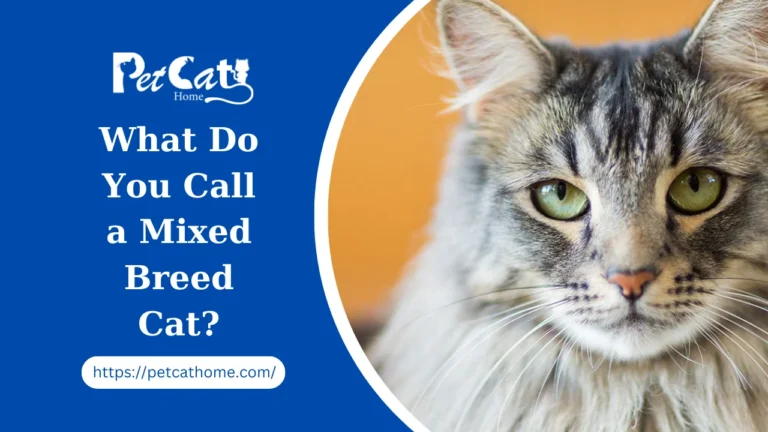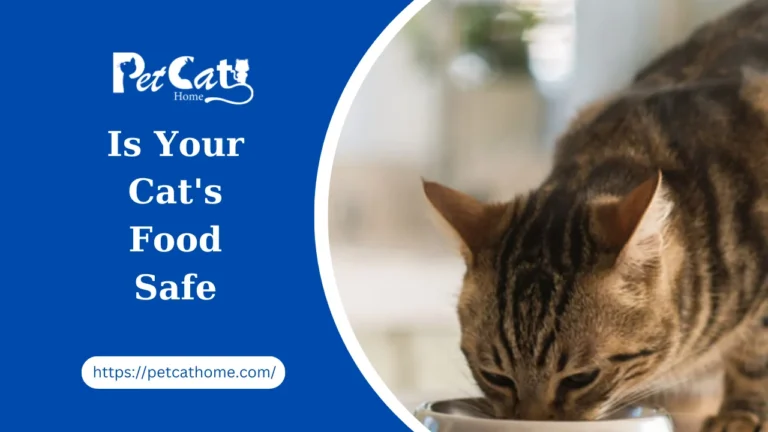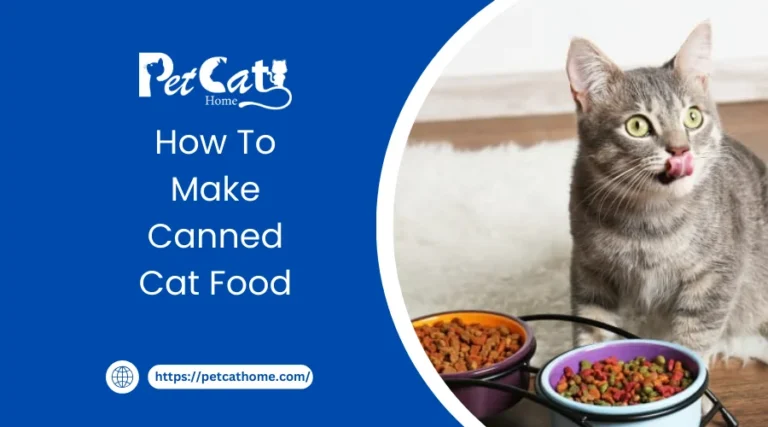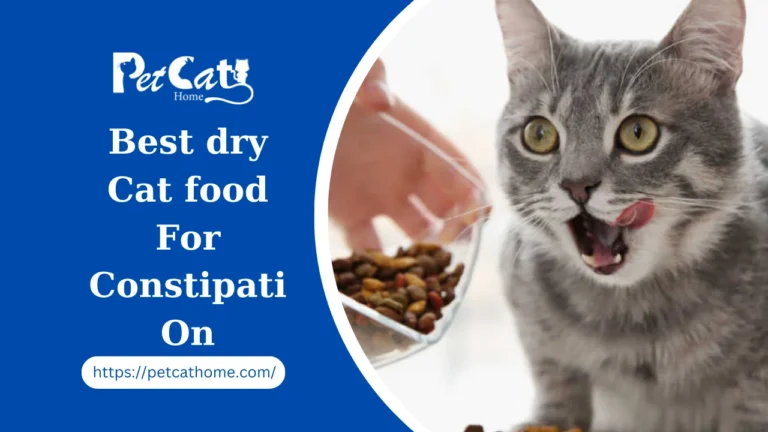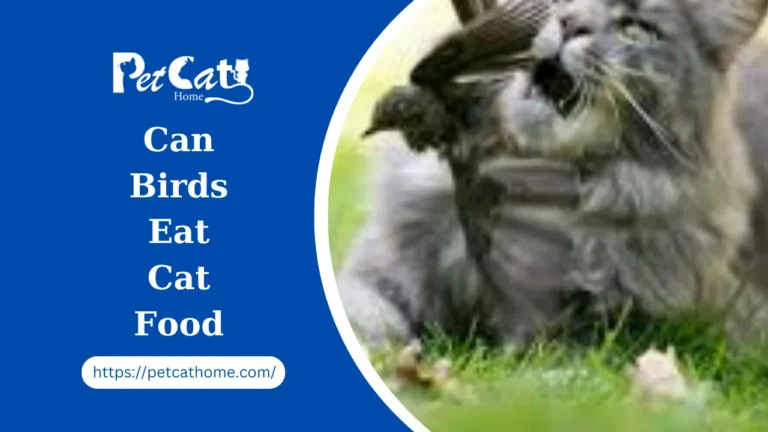Can Cat Food Cause Diarrhea in Dogs
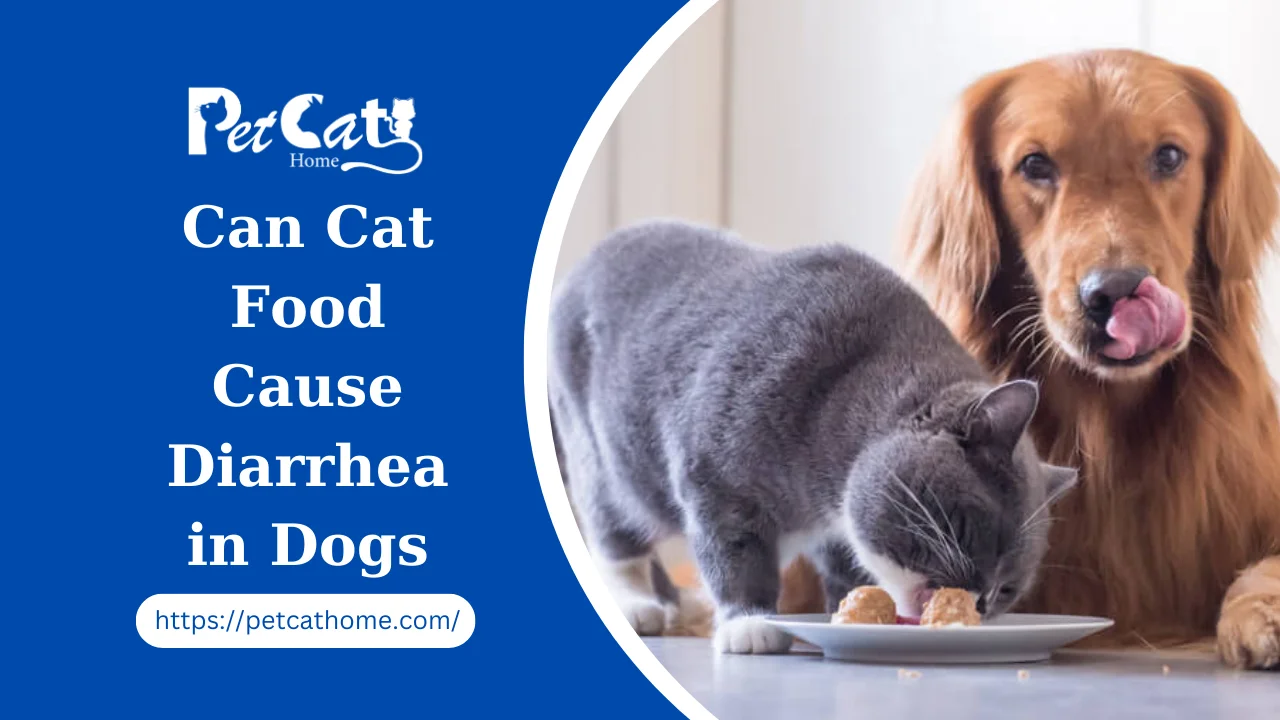
Cat food is fine for our feline pals but might not always agree with our dogs. We explore the possible dangers of giving dogs cat food in this extensive guide. Here are seven unexpected ways that dog diarrhoea can be caused by cat food, along with helpful advice on how to keep your pet happy and healthy. Our insights range from components to dietary requirements.
Indeed, a variety of variables, such as variations in the protein and fat content, a deficiency in vital nutrients, allergic substances, inequalities in fiber, and behavioral problems, can result in diarrhea in dogs when fed cat food.
7 Surprising Ways Cat Food Can Cause Diarrhea in Dogs
1. Understanding the Risks
Dogs may be exposed to different dangers from cat food because of the variations in their nutritional needs. Even though they are both carnivores, dogs’ nutritional requirements differ from cat food, which could cause stomach problems if they consistently eat it.
When fed cat foods, dogs may get upset stomachs, which can cause symptoms including vomiting, diarrhoea, and pain in the abdomen. A dog’s digestive tract may get overburdened by the high oil and protein content of cat food, leading to gastrointestinal distress.
2. Protein Overload
Generally speaking, cat food has more protein than dog food. For obligate carnivores like cats, this is advantageous, but for dogs, it can be excessive and result in gastrointestinal problems like diarrhea.
Regular cat food consumption by dogs can put a strain on their livers and digestive systems, making it difficult for their bodies to metabolize the excess protein and resulting in diarrhoea.
3. Fat Content
The increased fat level in many cat food recipes is another element that might cause diarrhoea in dogs. While dogs have a lower tolerance to fat than cats do, they are more vulnerable to digestive distress when fed high-fat diets. Cats need fat for energy.
Canine pancreatitis, a painful ailment marked by pancreatic inflammation, can be brought on by the high-fat content of cat food. Symptoms such as vomiting, diarrhoea, and stomach pain may arise from this.
4. Lack of Essential Nutrients
Dogs and cats have differing nutritional needs even though they both have carnivorous tendencies. Dogs may eventually develop shortages and digestive problems as a result of cat food’s lack of vital nutrients.
When dogs are provided with a diet lacking in vital nutrients, their systems may struggle to get the essential vitamins and minerals needed for healthy digestion and general well-being, which can lead to gastrointestinal issues like diarrhea.
5. Allergenic Ingredients
Certain proteins and grains that are frequently included in cat food might cause allergic responses in dogs. As a result of eating cat food containing allergens, dogs with certain allergies may experience digestive problems, including diarrhoea.
Fish, chicken, and cereals like wheat and corn are common sources of allergies in cat food. Exposure to these allergic components can cause diarrhea, vomiting, and itching, including skin inflammation in dogs with food sensitivities.
6. Differences in Fiber Content
To maintain the balance of gut bacteria and promote regular bowel movements, fibre is essential for digestive health. Compared to dog food, cat food frequently has lesser fiber content, which might affect a dog’s digestive system and cause diarrhea.
Dogs who consume too little fiber may experience loose stools or constipation because their bodies find it difficult to properly metabolize food in the absence of sufficient dietary fiber.
7. Behavioral Issues
In homes with multiple pets, dogs may eat cat food out of inquiry or to compete with their feline friends. Even while this habit seems harmless, it can hurt a dog’s digestive system and cause diarrhoea.
When a dog finds cat food more appetizing or tasty than their food, they may display behavioural problems like scavenging or stealing it. Both diarrhoea and gastrointestinal distress may come from this.
The Potential Link Between Cat Food and Diarrhea in Dogs – an Investigative Study
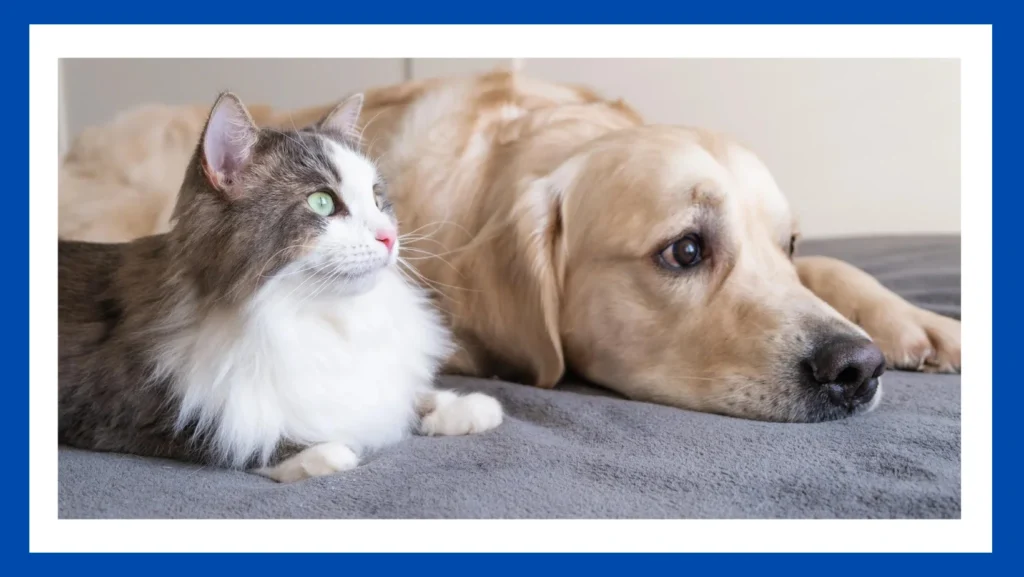
Dog owners frequently ask if eating cat food can give their dogs diarrhoea. With so many different kinds of pet food available, pet owners must be aware of the possible dangers of giving their pets anything except their special food.
In this piece, we’ll examine the possible causes of dog diarrhoea brought on by cat food as well as the risks it may offer to their general health. We will also provide advice on how to avoid this problem and keep their intestines in good working order.
Understanding the Differences:
The food requirements and digestive processes of dogs and cats differ. Cats are required carnivores, but dogs are omnivores. This indicates that compared to dogs, cats need more grams of protein and other vital nutrients. With a greater percentage of protein and distinct nutrient ratios, cat food is specially created to fulfil the nutritional demands of cats.
Dogs who eat cat food may get upset stomachs and digestive problems including diarrhoea. Gastrointestinal distress may arise from the nutritional variations in cat food overwhelming their digestive systems.
Understanding the Risks
Even though it could be tempting to let your dog sample cat food, you should be aware of the possible hazards. The nutritional requirements of cats are different from those of dogs, which is why cat food is specially created for them.
The protein level of dog and cat food is one of the primary distinctions. Higher protein levels in cat food can make it more difficult for dogs to digest. Diarrhoea is one of the gastrointestinal problems that may result from this.
Furthermore, many components in cat food may be hazardous to dogs. For instance, excessive concentrations of onions or garlic, which are toxic to dogs, may be present in some cat meals. It’s crucial to constantly review the ingredient list and stay away from feeding components in the cat food you feed your dog could be harmful.
Moreover, frequent feeding of dog or cat food can result in nutritional imbalances. canines’ nutritional requirements differ from cats’, and dog food cannot contain all the nutrients canines need to be in good health.
See your veterinarian as soon as possible if your dog inadvertently consumes cat food and develops diarrhoea. They can offer advice on how to treat diarrhoea and look out for your dog’s general health.
In conclusion, although feeding your dog or cat food may appear innocent, there are many concerns involved, such as exposure to harmful substances, gastrointestinal problems, and nutritional imbalances. It is usually preferable to continue feeding your dog food that has been specially prepared for them.
Potential Ingredients to Avoid
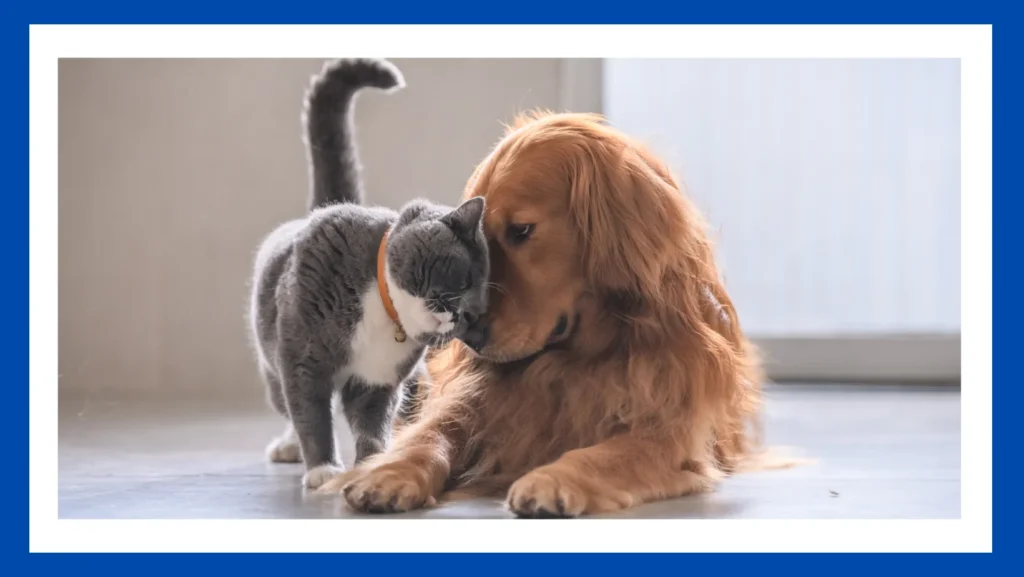
It’s crucial to be aware of some elements that can induce diarrhoea while choosing cat food for your dog. While some dogs might have no problems with these components, others can have sensitive digestive systems that make them intolerable. The following ingredients may be avoided:
- Garlic and onions: These foods can be poisonous to dogs and can irritate their stomachs and result in diarrhea.
- Artificial sweeteners: Among other symptoms, xylitol, a common artificial sweetener present in some cat foods, can be particularly harmful to dogs.
- Grains: While not all cereals are bad for dogs, some canine digestive issues might result in diarrhea. Soy, corn, and wheat are common crops to be wary of.
- Heavy fat content: Dogs may have trouble digesting foods heavy in fat, which could result in loose stools with diarrhea.
- Dairy goods: A lot of dogs have trouble digesting dairy products since they are lactose intolerant. Diarrhea may occur from feeding cat chow that contains dairy components.
- Artificial preservatives & additives: Dogs may get diarrhea as a result of digestive disturbances brought on by some chemical preservatives and chemicals, such as BHA and BHT.
- Allergenic proteins: Certain dogs may experience diarrhea as a result of an allergic reaction to proteins like chicken, beef, and fish. It’s crucial to stay away from cat food that contains these substances if the dog has a documented food allergy.
When selecting cat food for your dog, make sure to thoroughly study the ingredient labels. For more advice, speak with your veterinarian if you observe that your dog becomes diarrhoeal after eating a certain brand of cat food.
Symptoms of Diarrhea in Dogs
Dogs frequently have diarrhea as a digestive issue, which can be brought on by several things such as food, transmission, parasites, and even underlying medical disorders. Dog owners must recognize the signs of diarrhea to provide their pets with the care and attention they need.
Among the typical signs of diarrhea in dogs are: Dogs that have diarrhea could poop more frequently than usual. They might have to urinate outside more frequently.
Soft or watery stools: Dogs that have diarrhea frequently produce mushy, watery stools that may smell bad.
Straining or urgency to defecate: When attempting to urinate, dogs with constipation may strain or exhibit signs of urgency.
Blood or mucus in the stool: Dogs who have diarrhea may have blood or mucous in their stools. This warrants a veterinarian’s evaluation as it may indicate a more grave underlying condition.
Loss of appetite: Diarrhea can cause dogs to lose their hunger and turn down food. If left untreated, this might result in malnourishment and weight loss.
Vomiting: Dogs with diarrhea occasionally vomit as well. This warrants a veterinarian’s evaluation since it may point to a more serious gastrointestinal problem.
Lethargy or weakness: Dogs that have diarrhea may seem weak or lethargic. They can be less engaged in their typical activities and have less energy.
When your dog has diarrhea, it’s critical to keep an eye on their symptoms and seek veterinarian attention if diarrhea lasts more than a day, is followed by other worrisome symptoms, or seems like your dog is in pain. Your veterinarian is qualified to diagnose the diarrhea’s underlying cause and suggest the best course of action.
Preventing Diarrhea
Even while it’s critical to understand the reasons for dog diarrhea and the potential role that cat food plays, the most important thing is to prevent it completely. The following advice will help maintain the digestive tract of your pet in good condition:
- Maintain a regular diet: Don’t make abrupt dietary adjustments for your dog as this may upset the stomach and cause diarrhea. Maintain a regular feeding schedule and introduce new foods and rewards gradually.
- Don’t feed your dog cat food: Although a small taste now and then might not be dangerous, it’s recommended to avoid giving your dog cat food frequently. Cat food can be difficult for a dog’s digestive system to process because it is made especially for the specific nutritional requirements of cats.
- Select premium dog food: Make sure the food you choose is suitable for your pet’s age, size, and nutritional requirements. Choose a brand that makes use of simple-to-digest, natural components.
- Restrict table scraps: Refrain from offering your dog leftovers from the table since they may include substances that can make them nauseous or agitated. Continue giving them dog-friendly snacks or meals.
- Steer clear of foods poisonous to dogs: Dogs may become poisonous from several foods, which include chocolate, onions, grapes, and raisins, and may experience digestive problems, including diarrhea. Get familiar with a list of foods that are not good for dogs and make sure your pet cannot get to them.
- Practice proper hygiene: thoroughly washing your hands after handling your dog’s food or clearing up after them. This aids in stopping the transmission of parasites or bacteria that might cause diarrhea.
- Ensure that your dog: always has access to clean, fresh water by providing ample amounts of it. Dehydration can exacerbate diarrhea and can be a contributing factor to digestive issues.
- Frequent visits to the vet: Make an appointment for routine examinations with your veterinarian to treat any possible health issues early on. They can offer advice on what your dog should eat and suggest suitable foods.
You can lessen the chance that your dog may have diarrhea and maintain their happiness and health by taking these preventive steps.
Safe Alternatives for Dogs
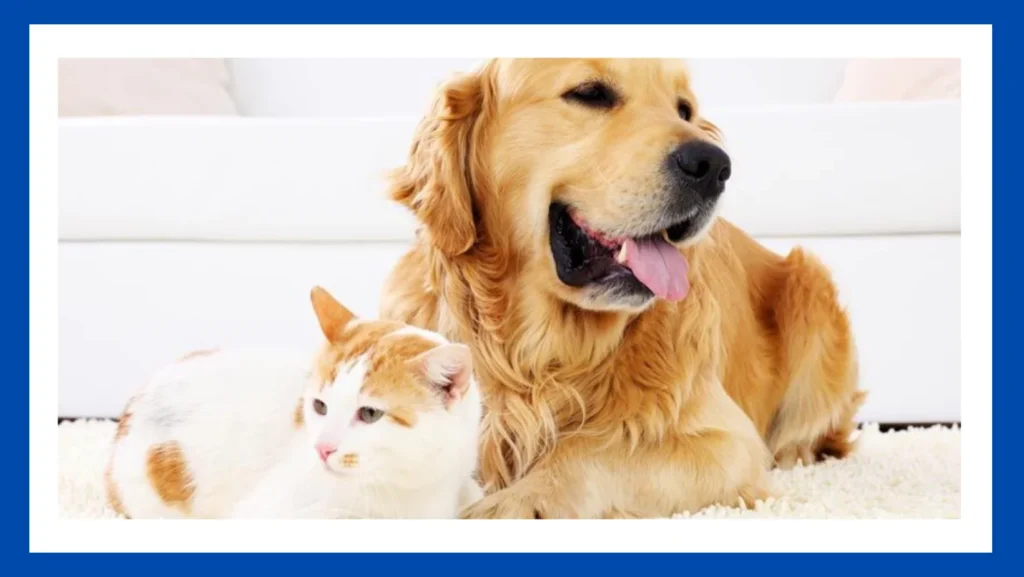
Although cat food should typically be avoided since it might give dogs diarrhea, there are several healthy substitutes you can give your pet. These substitutes are not only delicious but also nutrient-dense and may help support healthy digestive systems in dogs.
Here are some safe and healthy alternatives to cat food for dogs:
High-quality dog food: Particularly designed to satisfy dogs’ dietary requirements.
Lean meats (chicken, turkey, beef): Give vital amino acids and protein.
Eggs: Packed with vital fatty acids and premium protein.
Plain yogurt: includes probiotics that may facilitate digestion.
Pumpkin: High in fiber and useful for settling slack stools.
Rice: Simple to digest and capable of settling an upset stomach.
Sweet potatoes: Supply fiber, vitamins, and minerals.
To prevent any upset stomach, always introduce new foods gradually and in moderation. Before making any nutritional adjustments for your dog, it is best to speak with your veterinarian if your dog has any special dietary requirements or health issues.
When to Consult a Vet
See a vet right away if you discover that your dog is having diarrhea as a result of eating cat food. While the occasional case of diarrhea might not warrant concern, frequent or severe diarrhea may point to a more serious problem that needs to be addressed by a doctor.
Here are some indicators that it might be time to see a veterinarian:
- Diarrhea that lasts for more than 24 hours
- Blood in the diarrhea
- Lethargy or weakness
- Loss of appetite
- Vomiting
- Weight loss
- Dehydration (excessive thirst, dry gums, sunken eyes)
- Abdominal pain or discomfort
A veterinarian is qualified to identify the underlying cause of diarrhea and administer the proper care. To rule out some underlying health concerns, they might advise changing one’s diet, prescribing medicine, or recommending additional diagnostic testing.
To protect your dog’s health and well-being, you should consult a veterinarian. If diarrhea is left untreated, it can cause dehydration and nutritional deficiencies.
Can Cat Food Cause Diarrhea in Dogs
FAQs
Is there a way to stop my dog from consuming cat food?
Use pet gates to limit access to the cat’s eating area or feed your dogs in different areas to keep them from getting to the cat food. Additionally, to reduce the possibility of scavenging behavior, think about feeding your pets at predetermined intervals.
Is it bad for my dog to occasionally consume cat food?
Cat food given to your dog occasionally is not likely to have a negative impact. However, over time, frequent use may result in nutritional imbalances and intestinal problems. The ideal diet is well-balanced and tailored to your dog’s requirements.
Can I feed my pets a combination of cat and dog food?
Given that dog and cat food have different nutritional needs, mixing the two is not advised. Combining the two could lead to an imbalanced diet, which could cause issues for the pets’ health. See your veterinarian for advice on the best feeding practices for your animals.
What should I do if my dog eats cat food and then gets diarrhea?
If your dog has diarrhea after eating cat food, stop giving it to them right away and keep an eye on their symptoms. Make sure they have access to clean water and feed them simple, easily digested foods like rice and cooked chicken. For additional assessment and treatment, speak with your veterinarian if the diarrhea continues or gets worse.
Does eating cat litter pose any health hazards to dogs?
Yes, eating cat poop by dogs (a condition known as coprophagia) poses health hazards. Dogs may become ill from parasites and germs found in cat feces, including gastrointestinal tract infections and other conditions. Discourage this behavior as much as possible, and keep trash cans out of your dog’s reach.
Is it possible to teach my dog not to eat cat food?
It is possible to teach your dog to stay away from cat food by using consistent training methods and rewarding behavior. Give them instructions to “leave it” or “keep away,” and when they comply, give them something. By being persistent and patient, you can deter your dog from getting to the cat food.
Conclusion
Dogs may find cat food to be attractive, but it’s important to understand the possible consequences of cross-feeding. You may contribute to the maintenance of your dog’s overall health and digestive system by being aware of the variations in dietary needs and taking proactive steps. Don’t forget to speak with your veterinarian for customized guidance and suggestions based on your pet’s unique requirements.
